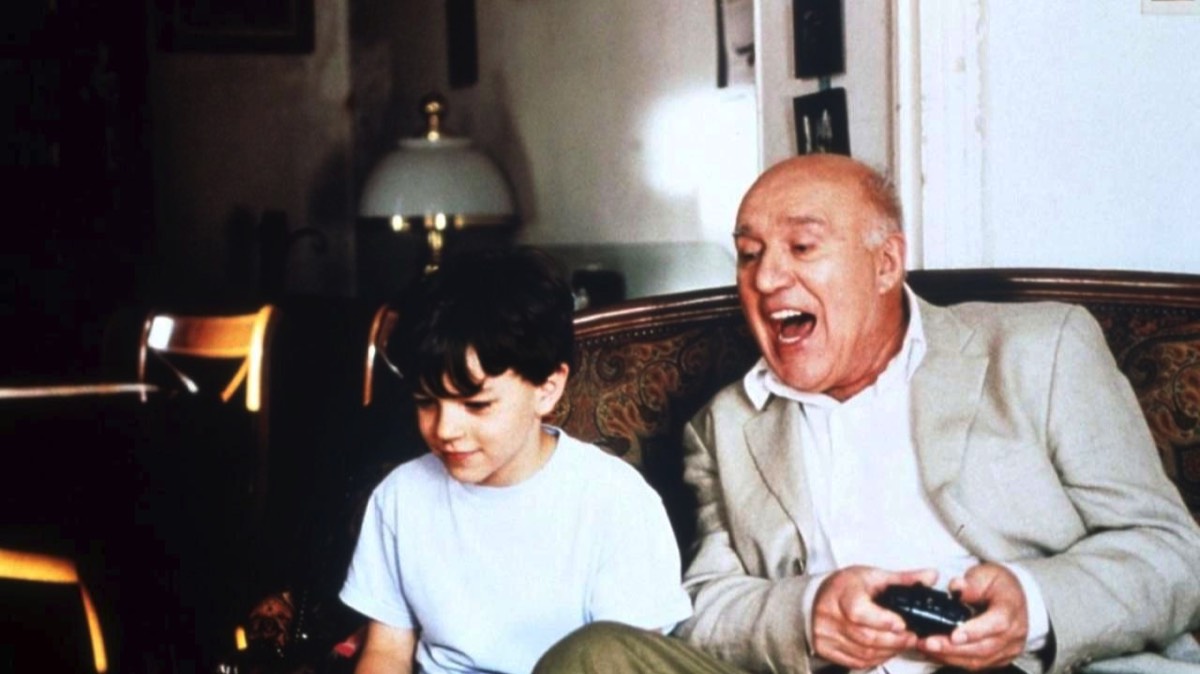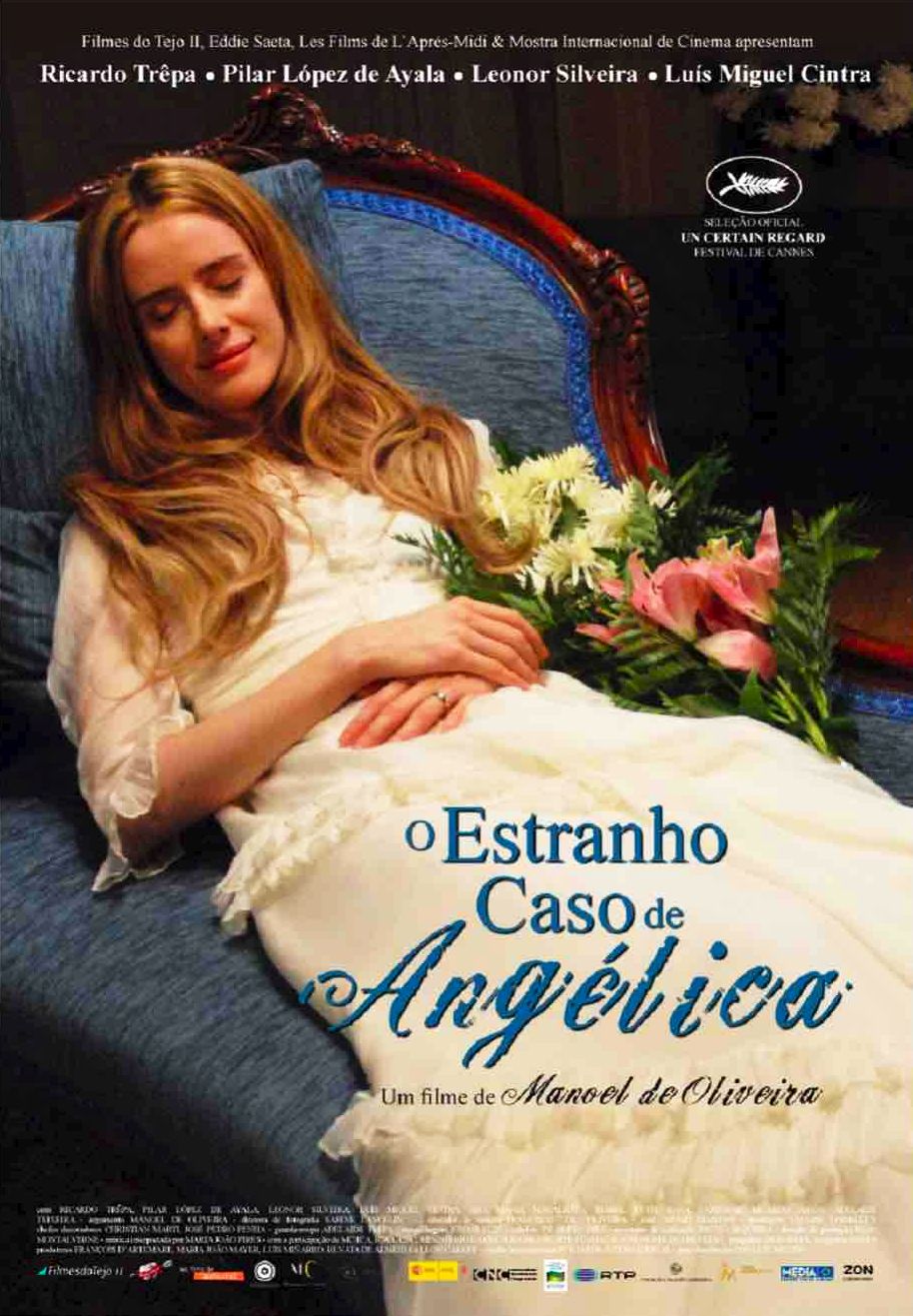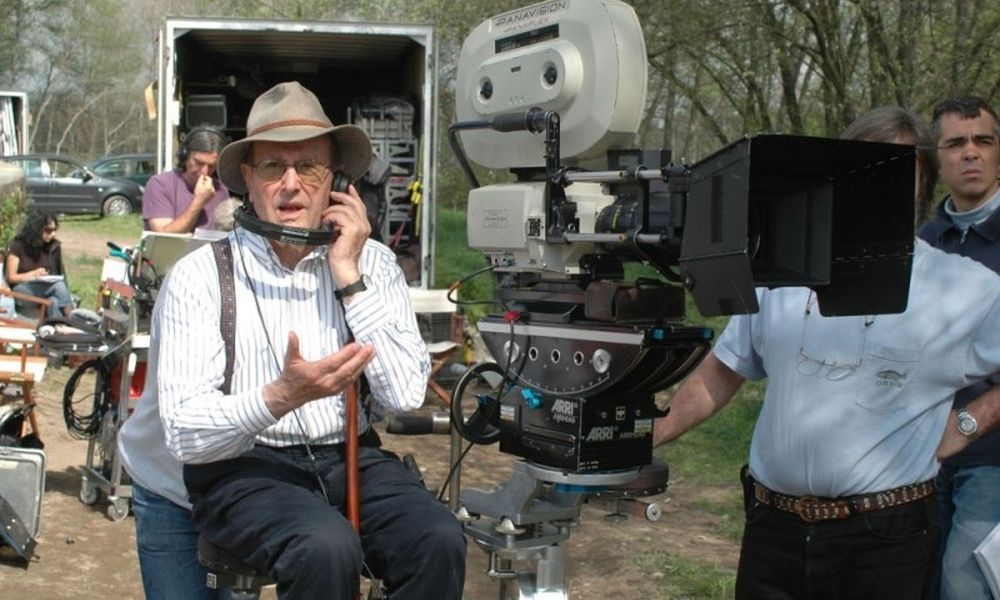"Manoel de Oliveira, one of the most original and profound artists working in cinema, was never more prolific than after turning 80, thereafter writing and directing one film a year into his late nineties… Despite his late renaissance as a filmmaker, Oliveira now enjoys a worldwide reputation and he has garnered a plethora of awards." - Ronald Bergan (The Rough Guide to Film, 2007)
Manoel de Oliveira
Director / Screenwriter / Editor / Producer / Cinematographer
(1908-2015) Born December 11, Oporto, Portugal
Top 250 Directors
(1908-2015) Born December 11, Oporto, Portugal
Top 250 Directors
Key Production Countries: Portugal, France, Spain, Switzerland, Italy
Key Genres: Drama, Psychological Drama, Romantic Drama, Comedy Drama, Short Film, Period Film, Satire, Religious Drama, Road Movie, Family Drama, Documentary, Biopic
Key Collaborators: Paulo Branco (Producer), Luís Miguel Cintra (Leading Character Actor), Valérie Loiseleux (Editor), Leonor Silveira (Leading Character Actress), Ricardo Trêpa (Leading Character Actor), Diogo Dória (Leading Character Actor), Zé Branco (Production Designer), Renato Berta (Cinematographer), Elso Roque (Cinematographer), Leonor Baldaque (Leading Character Actress), Christian Marti (Production Designer), Isabel Ruth (Character Actress)
Key Genres: Drama, Psychological Drama, Romantic Drama, Comedy Drama, Short Film, Period Film, Satire, Religious Drama, Road Movie, Family Drama, Documentary, Biopic
Key Collaborators: Paulo Branco (Producer), Luís Miguel Cintra (Leading Character Actor), Valérie Loiseleux (Editor), Leonor Silveira (Leading Character Actress), Ricardo Trêpa (Leading Character Actor), Diogo Dória (Leading Character Actor), Zé Branco (Production Designer), Renato Berta (Cinematographer), Elso Roque (Cinematographer), Leonor Baldaque (Leading Character Actress), Christian Marti (Production Designer), Isabel Ruth (Character Actress)
"The best Portuguese director, sensitive, enamored of art, and knowledgeable, who began making experimental documentaries (Douro Faina Fluvial) and later made, outside of the official industry, Aniki Bobo (42), a precursor of Italian neorealism." - Georges Sadoul (Dictionary of Film Makers, 1972)
"The mature, most accomplished phase of his career did not start until the early 70s, when he was well into his 60s. Leaning increasingly toward romantic fiction, he described this phase as the “stage of the bourgeoisie,” in contrast to his earlier “stage of the people.” Ostensibly, comprising a cycle of stories about frustrated love, his films of the 70s are admired by critics for their aesthetic poesy and modernist complexity. Oliveira’s harvest of the 80s consisted of both fact and fiction films, bringing to a culmination the wide-ranging creative career of a man who won belated recognition as one of Europe’s leading filmmakers." - The Film Encyclopedia, 2012

I'm Going Home (2001)
"Manoel de Oliveira is perhaps best known for the astounding fact that, as he approaches his centenary, he continues to direct at least one film per year… His style is often compared to that of Luis Buñuel or Robert Bresson. Oliveira encourages minimalist performances that recall Bresson’s conceptualization of actors as models and, like Buñuel, Oliveira routinely satirizes the bourgeoisie. However, Oliveira’s work is complicated by his sympathy for the elite class he pokes fun at. Consequently, his use of verbal and visual irony is less overt, and more circumspect." - 501 Movie Directors, 2007
"By the time of his death on April 2, 2015 at the remarkable age of 106, the Portuguese director Manoel de Oliveira was the oldest living filmmaker still actively working within the industry, and also the filmmaker with the longest career in the cinema, having directed films since 1927, beginning with a tantalizing project on the First World War that was never completed. If you consider that 1927 project Oliveira’s baptism in the cinema, then he had been a director for 88 years, longer than most of us manage simply to stay alive… During all this time, Oliveira developed a style that was so uniquely his own as to be instantly identifiable, something like the rigorousness of Straub and Huillet with a more emotional and less didactic edge, but nevertheless still challenging for most viewers. Yet it took the world quite a long time for the public to finally catch up with Manoel de Oliveira after nearly a century’s worth of work; it was only in his last decades, from the late 1980s onward, that he was acknowledged as an absolute master of the cinema." - Wheeler Winston Dixon (Senses of Cinema, 2018)
"The easing of restrictions in Portugal revived the career of the country’s most important filmmaker, Manoel de Oliveira, who began directing in the 1930s but had not been permitted to make a film between 1942 and 1956. Among his works over the next two decades that played a leading role in the development of Portuguese cinema were O acto da primavera (Spring Mystery Play, 1963), combining documentary and fiction based on traditional passion plays; O passado e o presente (The Past and the Present, 1971), a comedy; Amor de perdição (Doomed Love, 1978), and Francisca (1981), films that link stylized decor with narratives of frustrated passion." - Robert Sklar (Film: An International History of the Medium, 1993)
"If he deserves to be regarded as a master—and I believe he does—his mastery belongs partially in an eccentric category of his own invention, comparable to that of Thelonious Monk as an idiosyncratic jazz pianist. And it’s a mastery of sound and image that took shape fairly early—even though, as a director of actors, his foregrounding of artificial styles of performance doesn’t always enhance the technical gifts of his players." - Jonathan Rosenbaum (Film Comment, 2008)
"Simultaneously rugged and tender, the tortured work of Manoel de Oliveira, in which a personal vision is transformed into a unique expression of Portuguese culture, finds its only counterpart in that of Carl Theodor Dreyer. The radical aesthetic and ethical programs of both filmmakers met with incomprehension during the formative years of their careers. In addition, one finds a tragic fusion of profane desire and an aspiration toward the sacred in the work of both directors." - Manuel Dos Santos Fonseca (International Dictionary of Films and Filmmakers, 2000)
"Now universally considered a ‘great master’ of the cinema, Oliveira has had an extremely irregular and difficult career in his own country; only in the last two decades has he worked regularly, making twelve features (besides shorts) in twenty-three years, at a rate of one a year since 1990." - Augusto M. Seabra (Encyclopedia of European Cinema, 1995)
"Oliveira is a Portuguese filmmaker who is older than both the feature film and the republic of Portugal; he’s not only the last living filmmaker to have started in the silent era and the last living person to have worked in silent movies as an adult, but the only figure in film history whose career spans from the silent age to the digital era. He began making movies in 1927, and still makes movies today. The funny thing, though, is that Oliveira is also film history’s quintessential late bloomer. He didn’t get around to making his first feature until the 1940s; it wasn’t well received, and he spent the next few decades—most of an average adult life, really—running his family’s vineyard business, occasionally making documentary shorts on the side. Then he retired, and started making movies full-time—for pleasure. He had his international breakthrough at age 73, with the miniseries Doomed Love. Since then, he’s averaged a film a year." - Ignatiy Vishnevetsky (A.V. Club, 2014)
Selected Filmography
{{row.titlelong}}
GF Greatest Films ranking (★ Top 1000 ● Top 2500)
21C 21st Century ranking (☆ Top 1000)
T TSPDT R Jonathan Rosenbaum
21C 21st Century ranking (☆ Top 1000)
T TSPDT R Jonathan Rosenbaum
Manoel de Oliveira / Favourite Films
Battleship Potemkin (1925) Sergei Eisenstein, Gertrud (1964) Carl Theodor Dreyer, The Gold Rush (1925) Charles Chaplin, The Informer (1935) John Ford, Ivan the Terrible (1944-46) Sergei Eisenstein, Mouchette (1966) Robert Bresson, The Passion of Joan of Arc (1928) Carl Theodor Dreyer, Playtime (1967) Jacques Tati, Ugetsu monogatari (1953) Kenji Mizoguchi, Voyage in Italy (1953) Roberto Rossellini.
Source: Sight & Sound (2012)
Battleship Potemkin (1925) Sergei Eisenstein, Gertrud (1964) Carl Theodor Dreyer, The Gold Rush (1925) Charles Chaplin, The Informer (1935) John Ford, Ivan the Terrible (1944-46) Sergei Eisenstein, Mouchette (1966) Robert Bresson, The Passion of Joan of Arc (1928) Carl Theodor Dreyer, Playtime (1967) Jacques Tati, Ugetsu monogatari (1953) Kenji Mizoguchi, Voyage in Italy (1953) Roberto Rossellini.
Source: Sight & Sound (2012)
Manoel de Oliveira / Fan Club
Miguel Gomes, Inácio Araújo, John Davies, Fernando Lopes, Jordan Cronk, Ricardo Bedoya, Marco Dutra, Miguel Valverde, Daisuke Akasaka, Fábio Kawano, Charles Tesson, Lluís Miñarro.
Miguel Gomes, Inácio Araújo, John Davies, Fernando Lopes, Jordan Cronk, Ricardo Bedoya, Marco Dutra, Miguel Valverde, Daisuke Akasaka, Fábio Kawano, Charles Tesson, Lluís Miñarro.
"Fan Club"
These film critics/filmmakers have, on multiple occasions, selected this director’s work within film ballots/lists that they have submitted.
These film critics/filmmakers have, on multiple occasions, selected this director’s work within film ballots/lists that they have submitted.


